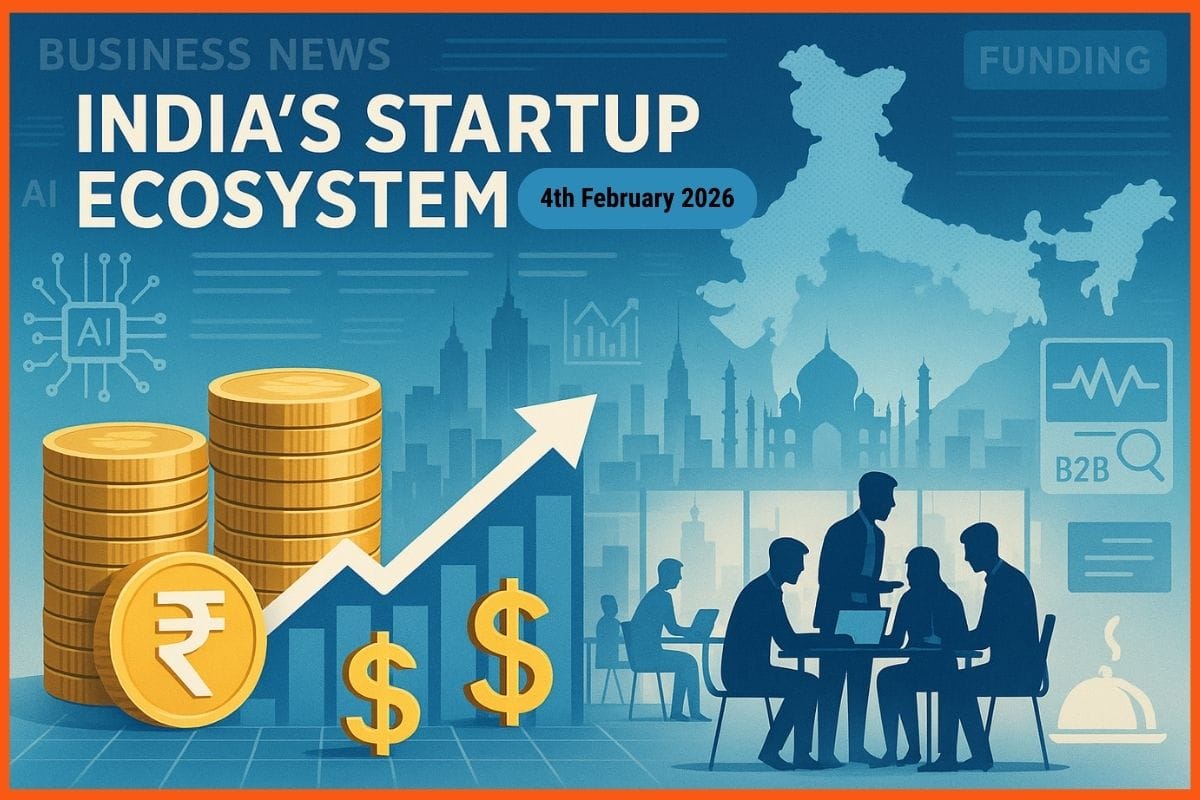Sony India: Innovating for India, Backed by Global Expertise
📄Company Profiles
Sony is a global leader in technology and entertainment, renowned for its diverse portfolio of innovative products and services. The company's presence spans consumer electronics, gaming, entertainment, and financial services, making it a well-rounded conglomerate.
In the entertainment domain, Sony has made significant strides through Sony Pictures, Sony Music, and the PlayStation platform, contributing to its prominence in both film and gaming.
Beyond its consumer offerings, Sony is committed to sustainability, aiming to reduce its environmental footprint through initiatives like its Green Management 2025 program, which focuses on reducing plastic usage and lowering energy consumption in its products. In this Start-Up Talky article, we will explore how Sony India leverages its global expertise, local innovation, and expansive network to stay ahead in the ever-evolving tech landscape.
Sony India - Company Highlights
| Name | Sony India |
|---|---|
| Headquarters | New Delhi, India |
| Sector | Marketing, sales and after-sales service of electronic products & software exports |
| Founder | Masaru Ibuka Akio Morita |
| Founded | 1994 |
| Website | www.sony.co.in |
Sony India - About
Sony India - Industry
Sony India - Founders and Team
Sony - Startup Story
Sony India - Mission and Vision
Sony India - Name, Tagline and Logo
Sony India - Business Model
Sony India - Revenue Model
Sony India - Challenges Faced
Sony India - Growth
Sony India - IPO
Sony India - Marketing Strategy and Advertisements
Sony India - Awards and Achievements
Sony India - Competitors
Sony India - Future Plans
Sony India - About
Sony India Pvt. Ltd. is the Indian arm of Japan’s renowned Sony Corporation. Known for delivering cutting-edge technology, Sony's presence in India stretches across major cities and towns, supported by an extensive network of over 20,000 dealers and distributors. With 300 exclusive outlets, 25 branch offices, and 19 sales branches, Sony covers 450 cities nationwide. To streamline its operations, the company has also set up 30 warehouses and 270 Sony Centers, ensuring its products are within easy reach for Indian customers. At the heart of its operations in India is the Sony India Software Centre (SISC) in Bengaluru, established in 1997. Nicknamed India’s Silicon Valley, Bengaluru houses this vital hub, which serves as a global offshore IT center and a powerhouse for the development of software driving Sony's diverse product portfolio.
From advancing 3D technology to pioneering products like Sony Internet TV, Sony Tablets, and Android-based mobile devices, SISC plays a pivotal role in bringing next-gen innovations to life. As a strategic offshore IT hub, SISC collaborates with Sony Group companies worldwide, focusing on enhancing operations and driving product development. By leveraging India’s tech talent, Sony ensures it remains at the forefront of technological innovation while serving its customers with precision and excellence.

Sony India - Industry
India’s electronics export sector is witnessing remarkable growth, with exports soaring to $155 billion in FY23.
This upward trajectory is expected to continue, with projections estimating exports will reach $120 billion by 2026.
Key contributors to this growth include mobile phones, IT hardware, consumer electronics, industrial electronics, and auto electronics—highlighting the country’s evolving technological capabilities and competitive edge in global markets.
Meanwhile, the after-sales service market in India is thriving, driven by the growing need for dependable customer support solutions.
Valued at around $10 billion in 2020, this sector is anticipated to double, reaching an impressive $20 billion by 2025.
This expansion underscores the critical role of robust service networks in enhancing customer experience and sustaining product loyalty in a dynamic market.
Sony India - Founders and Team
Masaru Ibuka (Co-Founder)

Masaru Ibuka, a pioneering Japanese electronics industrialist, co-founded Sony Corporation alongside Akio Morita. His innovative spirit and leadership helped shape Sony into a global technology powerhouse.
After graduating from Waseda University in 1933, Ibuka began his career at Photo-Chemical Laboratory, a company specializing in movie film processing. During World War II, he served in the Imperial Japanese Navy, contributing to the Wartime Research Committee. Post-war, in September 1945, Ibuka left both his job and the navy to establish a modest radio repair shop in the bombed-out Shirokiya Department Store in Nihonbashi, Tokyo—a humble beginning that laid the foundation for a technological revolution.
In 1946, Ibuka’s initiative caught the attention of Akio Morita, a fellow wartime researcher. Morita joined Ibuka in Tokyo, bringing financial support from his family. Together, they co-founded Tokyo Telecommunications Engineering Corporation, which evolved into Sony Corporation in 1958.
Ibuka played a pivotal role in Sony's early success. His foresight led to the acquisition of transistor technology licensing from Bell Labs in the 1950s, positioning Sony as a pioneer in adapting this technology for consumer products. His leadership also drove the development of the iconic Trinitron color television in 1967, a breakthrough in TV technology that solidified Sony’s reputation for innovation.
Ibuka served as Sony’s president from 1950 to 1971 and later as chairman until his retirement in 1976, leaving behind a legacy of technological advancement and entrepreneurial excellence.
Akio Morita (Co-Founder)

In 1944, Morita graduated from Osaka Imperial University with a degree in physics. During World War II, he served as a sub-lieutenant in the Imperial Japanese Navy. It was during this period that he met Masaru Ibuka, his future business partner, while working on the Navy's Wartime Research Committee, specifically in a study group focused on developing infrared-guided bombs.
In 1946, Morita and Ibuka co-founded Tokyo Tsushin Kogyo K.K. (Tokyo Telecommunications Engineering Corporation), later renamed Sony. The company's first breakthrough came in 1949 with the development of magnetic recording tape, followed by the release of Japan's first tape recorder in 1950.
Ibuka played a crucial role in securing the licensing of transistor technology from Bell Labs in the 1950s. Sony became one of the first companies to apply transistor technology for non-military purposes, setting the stage for groundbreaking consumer electronics innovations.
Morita’s leadership and vision transformed Sony into a global brand, introducing iconic products like the transistor radio and the Walkman, which redefined the electronics industry. His passion for innovation and global outreach made him a pivotal figure in modern business history.
Sunil Nayyar (Managing Director)

Sony India achieved a significant milestone on April 1, 2018, with the appointment of Mr. Sunil Nayyar as its Managing Director, marking the first time an Indian has held this prestigious position. In his role, Sunil is entrusted with steering the company’s growth and profitability in the region. He oversees the development and execution of an integrated business and marketing strategy, ensuring top-tier market performance across all product categories.
Sunil brings a wealth of international experience to the role. He began his journey with Sony in the Sony Gulf sales team, managing key markets such as North and East Africa, Russia, Lebanon, Syria, and the GCC countries. From 2006 to 2015, he served as Sales Head, successfully driving business in these regions.
Building on his expertise, Sunil transitioned to Sony North America in 2015, where he led the Retail Experience division until March 2018, honing his skills in customer engagement and strategic operations.

Sony - Startup Story
Sony’s journey started in 1945, when Masaru Ibuka opened a modest radio repair shop in Tokyo's Shirokiya department store, laying the groundwork for a tech empire. A year later, in 1946, Ibuka teamed up with Akio Morita, a wartime research colleague, to establish Tokyo Tsushin Kogyo K.K. (Tokyo Telecommunications Engineering Corporation)—the company that would eventually become Sony.
Sony’s initial product was an electric rice cooker, developed in the late 1940s. Although it wasn’t a commercial success, it marked the company’s entry into consumer electronics.
The turning point came in the early 1950s when Sony secured a license from Bell Labs to build transistors. This strategic move allowed the company to explore innovative uses for this groundbreaking technology.
Sony became a pioneer in making transistor radios a household product. While American companies focused on military and computing applications, Sony’s emphasis on consumer use brought widespread success and transformed the market.
In line with its global ambitions, the company rebranded itself as Sony in 1958. The name was inspired by the Latin word sonus (sound) and the colloquial term "sonny", reflecting the brand's youthful and innovative spirit.
Sony didn’t stop at radios. It expanded into producing VCRs, stereos, and recording equipment and later became a leader in the gaming industry with iconic products like the PlayStation series.
Sony India - Mission and Vision
Mission
Sony’s mission is centered on creating kando, a Japanese concept that embodies the ability to move people emotionally and spark their curiosity. By blending the power of technology and creativity, Sony aims to enrich lives and foster a deeper connection between individuals and their experiences. Beyond innovation, Sony actively seeks to make a positive impact through partnerships, product donations, and employee volunteer programs, ensuring its technology serves as a force for good in society.
Vision
Sony envisions a world where it continues to inspire and connect people by delivering kando globally. The company strives to lead in innovation, not only through groundbreaking products but also through meaningful contributions to society. Sony’s Corporate Social Responsibility (CSR) initiatives reflect this vision, with a focus on education, sustainability, heritage protection and providing shelter and rehabilitation. Through these efforts, Sony seeks to be more than a technology provider, positioning itself as a beacon of creativity and empathy in a constantly evolving world.

Sony India - Name, Tagline and Logo

Name
The name "Sony" is a fusion of two distinct inspirations: the Latin word sonus, meaning sound or sonic, and the playful English term " symbolizing youthful energy and curiosity. This unique blend reflects Sony’s dedication to innovation in audio technology while embodying a youthful, forward-thinking spirit that resonates with creativity and progress.
Tagline
Sony India’s tagline, "make. believe", encapsulates the spirit of imagination and innovation. Launched in 2009, this slogan unifies Sony's global brand identity and reinforces its belief that anything you can imagine is possible. It reflects Sony’s commitment to turning creative ideas into groundbreaking realities through the fusion of technology and creativity, inspiring consumers worldwide.
Sony India - Business Model
Sony India’s operations are built around a robust business model that includes:
- Marketing and After-Sales Service: The company not only markets and sells electronic products and software but also ensures reliable after-sales service for its customers.
- Extensive Distribution Network: With a reach of over 20,000 dealers and distributors, 300 exclusive Sony outlets and 25 branch locations, Sony ensures its products are accessible across India.
- Efficient Supply Chain Management: The company operates 30 warehouses and 270 Sony Centers, facilitating seamless product availability and distribution.
Through its corporate social responsibility (CSR) initiatives, the company supports individuals with disabilities by providing free artificial limbs, callipers, crutches, and other essential aids.
Sony India - Revenue Model
Sony India’s revenue model thrives on a diversified presence in the consumer electronics market, with a strong emphasis on premium products that cater to evolving customer needs. Here’s a breakdown of its key revenue streams:
- Televisions (55–60%): The flagship segment, contributing the largest share to Sony India’s annual revenue, driven by its high-end Bravia TV range.
- Digital Imaging (15–20%): Cameras and imaging solutions remain pivotal, attracting photography enthusiasts and professionals alike.
- Audio Products (10–15%): Personal audio devices, home theater systems and car audio products form a significant portion of revenue.
- Gaming (10–12%): The PlayStation 5 console is a major growth driver, reflecting Sony’s strong foothold in the gaming industry.
Sony India - Challenges Faced
1. Declining Advertising Revenue
In the fiscal year ending March 31, 2024, Sony India's advertising revenue declined by 11%, amounting to INR 2,912 crore. This drop highlights challenges within the advertising market, including economic pressures and shifting ad spending patterns.
2. Falling Viewership for Sony Entertainment Television (SET)
Sony Entertainment Television has experienced a decline in viewership in recent years. This is primarily due to:
- Viewership Saturation: Audiences for reality shows, a key draw for SET, have reached a plateau.
- Lack of Innovation: A stagnant programming lineup has failed to capture newer audience interests.
- Competition from Streaming Platforms: On-demand services like Netflix, Amazon Prime and Disney+ have increasingly diverted viewers.
3. Complex Zee Entertainment Merger
The merger with Zee Entertainment Enterprises posed significant challenges due to its scale and complexity. Integration required extensive time and resources to align operations, culture, and strategies between the two large organizations.
4. Shifts in the Media Landscape
The rapid rise of digital platforms and changing consumer content preferences have reshaped the entertainment industry. Sony India faces pressure to adapt to this evolving landscape while maintaining relevance and profitability.
Addressing these challenges will require Sony India to innovate in its programming, strengthen its digital presence, and effectively navigate organizational changes.

Sony India - Growth
| Sony Financials | FY22 | FY23 | FY24 |
|---|---|---|---|
| Operating Revenue | INR 5,161 crore | INR 6,353.74 crore | INR 7,663.74 crore |
| Total Expenses | INR 5,050 crore | INR 6,225.87 crore | INR 7,502.30 crore |
| Profit/Loss | Profit of INR 111 crore | Profit of INR 136.67 crore | Profit of INR 167 crore |

Revenue Growth: Operating revenue saw consistent growth across all three years, with a notable 20.6% increase in FY24.
Expenses: Total expenses increased significantly by 20.5% in FY24 compared to FY23, driven by higher marketing and promotional spending.
Profitability: Net profit grew 22.18% in FY24, reaching INR 167 crore, despite higher expenses, reflecting improved operational efficiency and market performance.
Sony India - IPO
Sony is preparing for a major capital infusion as it plans to launch an IPO for its financial unit in 2025. This comes after PlayStation 5 (PS5) sales have started to falter, prompting the company to adjust its forecasts for its core gaming division. Despite these challenges, Sony aims to secure additional funds through the IPO, potentially boosting its financial resources to support growth in other areas, including its premium product strategy and expansion plans in the consumer electronics and gaming sectors. This move is part of Sony's broader strategy to diversify and bolster its revenue streams amid slower growth in gaming.
Sony India - Marketing Strategy and Advertisements
Here are some of the prominent marketing strategies of Sony India:
Brand Films: Sony India produces brand films showcasing product features, such as highlighting their cameras and lenses for capturing moments.
CGI Campaigns: Creative CGI campaigns are used to promote products, like the Holi-themed campaign for the XV800 party speaker.
Social Media Engagement: Active engagement on platforms like Facebook and Twitter, including interactive posts and product pages to connect with consumers.
TV Commercials: TV ads are used to showcase product features and benefits to a broad audience.
Sports Sponsorships: Sony India taps into various markets through sports sponsorships, increasing brand visibility.
Celebrity Endorsements: High-profile endorsements help amplify the brand’s reach and appeal, utilizing star power to resonate with consumers.
Sony Sports Ad: The “Live Every Sport” campaign inspires people by showcasing the perseverance of athletes, encouraging viewers to apply the same spirit in life.
Think Weddings, Think Sony - Marketing Campaign
"Think Weddings, Think Sony" Campaign
Sony India’s latest brand film takes creativity to the next level by highlighting why their cameras and lenses are the ultimate choice for capturing every special moment. Featuring breathtaking visuals and heartwarming scenes, the film emphasizes Sony’s cutting-edge technology that ensures flawless photos and videos.
On an emotional level, the film celebrates love, tradition, and weddings, reinforcing Sony as the go-to brand for such precious moments. The campaign also sparked a conversation across social media, with fans and brand loyalists joining in to show their support. The perfectly timed campaign not only strengthened the association of Sony with weddings but also reinforced its position as the ideal partner in capturing life’s most cherished events with a simple, yet powerful tagline: Think Weddings, Think Sony.

Sony India - Awards and Achievements
Sony India has garnered numerous awards and recognition for its impactful corporate social responsibility (CSR) initiatives, sustainability efforts, and more:
- Golden Peacock Awards: For contributions to education and village development.
- Golden Peacock Award for Corporate Social Responsibility: Received in January 2016.
- Best Employer Brand Award: From the National HRD Congress and CMO Asia.
- Sony S3 Honour Awards: Recognized Asit Kumarr Modi and Neela Film Productions for achievements in sustainability, safety and security.
- Biodiversity Action Award: For the Wow! Wow! Biodiversity Project in November 2016.
- 2016 Environmental Media Awards: For The Angry Birds for A Happy Planet campaign by Sony Pictures Entertainment.
- Innovation Award: For the development of Entertainment Access Glasses (STW-C140GI) in May 2016.
- BT Award: For the "Hole in the Wall" project and village development.
Sony India - Competitors
Sony India's competitors in the security and surveillance industry include:
- D-Link
- Samsung Communications Centre
- Synology
- Ganz
- Genetec
- Indigo Vision
- Lorex
- Vivotek
Sony India - Future Plans
Strategy for Growth: Sony India's strategy revolves around premiumisation, focusing on selling more premium products across its product zones such as TVs and audio products. The goal is to raise the average selling price (ASP) and offer new technology to customers annually.
Historical Revenue: Sony India aims to surpass its historical revenue of INR 11,000 crore (FY15) in the coming years. Its revenue had declined after the exit from the mobile phone and laptop business but stabilized and showed positive growth from FY22.
Future Goals: Sony India is targeting INR 10,000 crore revenue in the near future, though no specific timeline is set.
Environmental and Sustainability Initiatives: Green Management 2025: Sony aims to reduce its environmental footprint by 2025, focusing on lowering plastic usage and energy consumption in its products.
Gaming Business: Sony expects modest growth in its gaming business in 2024. The PlayStation 5 currently holds a 95% market share in India.
Expansion Plans: Sony plans to expand its Bravia TV series and continue to develop its gaming market in India.
Future IPO Plans: Sony India is planning an IPO for its financial unit in 2025.
FAQ
Who owns Sony India?
Sony India is owned by Sony Corporation, a Japanese multinational conglomerate.
Is Sony successful in India?
Yes, Sony is successful in India, with a strong market presence in consumer electronics, gaming, and entertainment sectors.
Who is the CEO of Sony?
The current Chairman and CEO of Sony Group Corporation is Kenichiro Yoshida.
What is Sony's biggest product?
Sony's biggest product is its PlayStation gaming consoles, which dominate the global gaming market.
Must have tools for startups - Recommended by StartupTalky
- Convert Visitors into Leads- SeizeLead
- Website Builder SquareSpace
- Run your business Smoothly Systeme.io
- Stock Images Shutterstock






